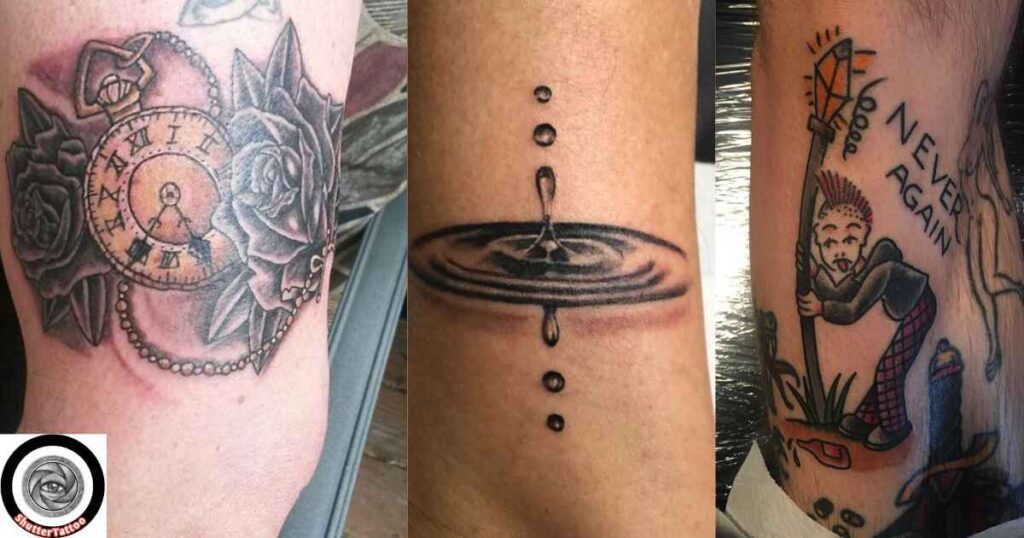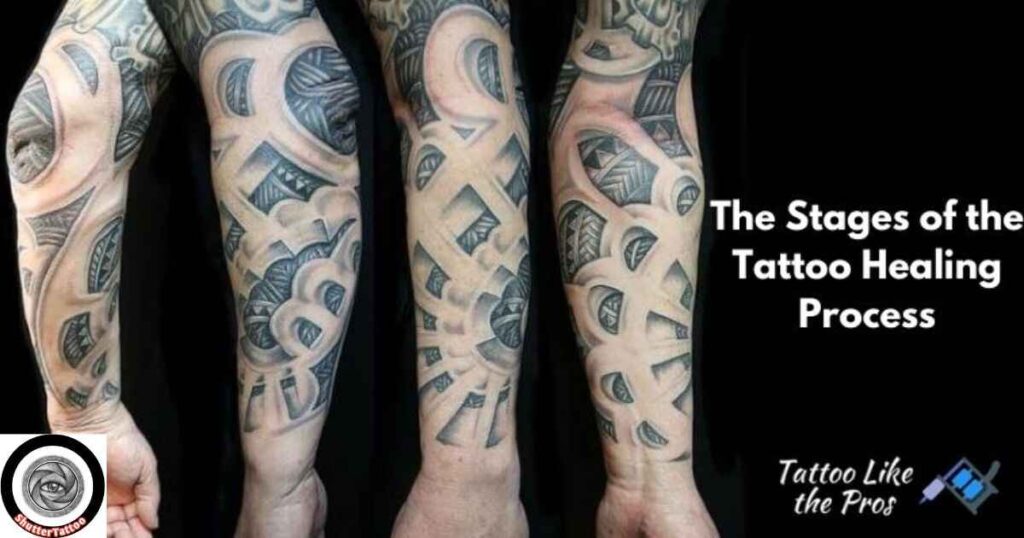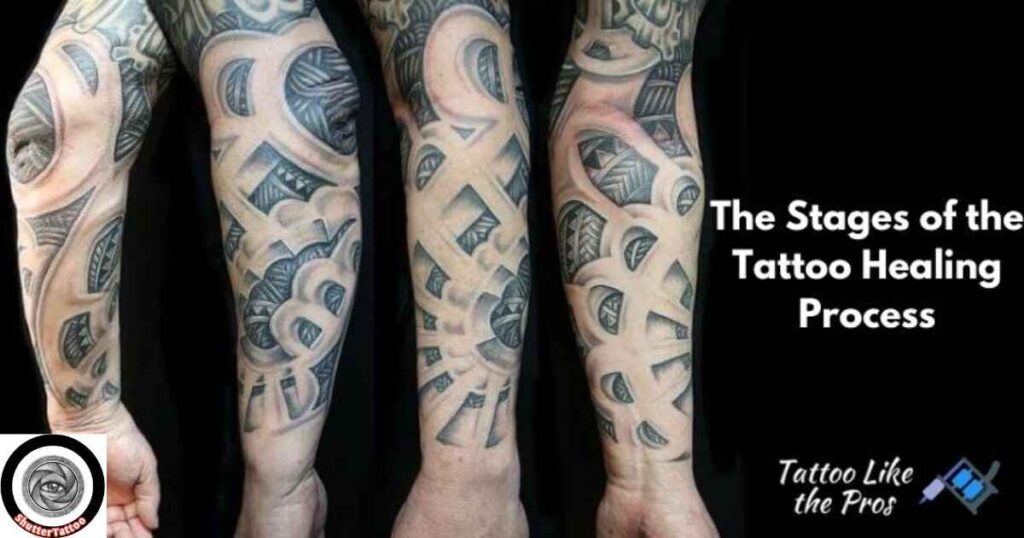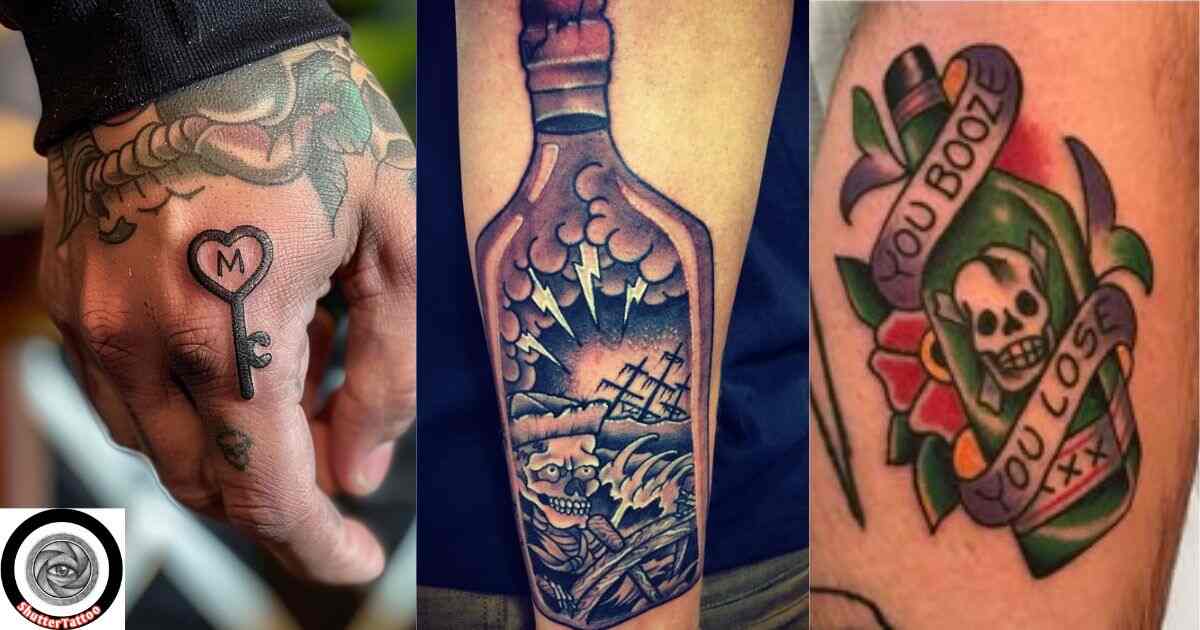Embarking on the journey of sobriety is a profound testament to personal strength and resilience. But how can one encapsulate this transformative experience in a lasting, meaningful way? Sober tattoos have emerged as powerful symbols of recovery and self-discovery, offering individuals a permanent reminder of their commitment to a healthier life.
In this article, we’ll explore the significance of sobriety tattoos, delve into popular design choices, and provide guidance on selecting a tattoo that resonates with your unique path. Whether you’re considering this form of self-expression or simply curious about its growing popularity, read on to discover how ink can serve as a testament to your journey towards sobriety.
What Is a Sober Tattoo? Exploring the Meaning Behind the Ink
Sober tattoos serve as enduring symbols of an individual’s commitment to recovery, encapsulating personal growth and resilience.
A sober tattoo is more than just body art; it’s a profound emblem of one’s journey through addiction recovery. These tattoos often incorporate symbolic elements such as dates, prayers, motivational phrases, or images that reflect the struggle and personal growth of overcoming addiction.
How Sober Tattoos Symbolize Personal Growth and Resilience

Sober tattoos encapsulate the transformative journey from addiction to recovery, symbolizing personal growth and unwavering resilience.
Each sobriety tattoo tells a unique story of triumph over adversity. For many, these tattoos are not merely artistic expressions but deeply personal symbols that mark significant milestones in their recovery journey. They serve as powerful reminders of a person’s commitment to living a life free from the confines of addiction.
The History and Evolution of Sobriety Tattoos in Recovery Culture
Sobriety tattoos have evolved within recovery culture as personalized symbols of healing, resilience, and personal growth.
The practice of marking one’s body to signify personal milestones is not new. In the context of recovery, sobriety tattoos have emerged as a means for individuals to commemorate their journey towards healing. These tattoos often serve as a source of inspiration during challenging times, reinforcing the individual’s dedication to a sober lifestyle.
Why More People Are Choosing Tattoos to Mark Their Sobriety Journey
Tattoos offer a personal and permanent way to commemorate sobriety, serving as daily affirmations of one’s commitment to recovery.
The decision to get a sobriety tattoo is deeply personal. For many, it represents a permanent reminder of their strength and commitment to a healthier life. These tattoos can also serve as conversation starters, allowing individuals to share their stories and inspire others on similar paths.
Why Get a Sober Tattoo? 5 Powerful Reasons to Consider

1. A Permanent Reminder of Your Strength and Commitment
Sobriety tattoos serve as lasting symbols of one’s dedication to overcoming addiction and embracing a healthier lifestyle.
Choosing to adorn your body with a sobriety tattoo provides a constant visual reminder of the challenges you’ve overcome and the strength you’ve cultivated. This permanent mark reinforces your commitment to maintaining a sober lifestyle, even when faced with temptations or hardships.
2. Celebrating Milestones in Your Sobriety Journey
Commemorating significant milestones with a tattoo can enhance motivation and acknowledge personal achievements in recovery.
Marking milestones—be it one year sober or a decade free from addiction—with a tattoo serves as a personal celebration of your progress. These commemorations not only honor your achievements but also motivate you to continue striving for future goals.
3. Building a Visual Connection to Your Support System
Sobriety tattoos can symbolize the support systems and communities that play a crucial role in the recovery process.
Incorporating symbols or elements that represent your support network—such as family, friends, or recovery groups—into your tattoo can strengthen your connection to those who have aided your journey. This visual representation serves as a tribute to the collective effort involved in your recovery.
4. Inspiring Others Through Your Story of Recovery
Visible sobriety tattoos can inspire others facing similar struggles, fostering a sense of community and hope.
Your sobriety tattoo can act as a beacon of hope for others battling addiction. By sharing the meaning behind your ink, you open the door for conversations that can inspire and motivate others to pursue their own recovery journeys.
5. Turning Pain into Art: Healing Through Tattoo Design

Transforming personal struggles into meaningful art can be a therapeutic aspect of the recovery process.
The process of designing and receiving a sobriety tattoo allows individuals to channel their past pain into a creative and healing endeavor. This transformation of adversity into art can be a cathartic experience, aiding in emotional healing and personal growth.
How to Choose the Perfect Sober Tattoo Design
Selecting a sober tattoo that resonates personally enhances its significance and serves as a lasting emblem of your recovery journey.
Popular Sober Tattoo Symbols and Their Meanings
Understanding the symbolism behind popular sobriety tattoos can guide you in choosing a design that aligns with your personal narrative.
- Serenity Prayer: Often associated with Alcoholics Anonymous (AA), the Serenity Prayer embodies the acceptance, courage, and wisdom integral to recovery.
- Lotus Flower: Symbolizing rebirth and purity, the lotus flower represents emerging from adversity, mirroring the journey of overcoming addiction.
- Semicolon: A universal symbol of continuation, the semicolon signifies a pause rather than an end, reflecting the decision to continue one’s life journey despite past struggles.
Customizing Your Design to Reflect Your Unique Story
Personalizing your sobriety tattoo ensures it authentically represents your individual experiences and milestones.
Consider incorporating elements that hold personal significance:
- Dates: Embedding your sobriety date serves as a constant reminder of your commitment and the progress you’ve made.
- Personal Symbols: Integrate motifs that resonate with your journey, such as animals, objects, or cultural symbols that embody your resilience and transformation.
Working with a Tattoo Artist to Bring Your Vision to Life
Collaborating with a skilled tattoo artist is crucial in translating your personal story into a meaningful design.
- Research Artists: Seek out tattoo artists experienced in creating custom designs, particularly those familiar with sobriety symbols.
- Consultation: Engage in a thorough discussion with your chosen artist to convey your story, preferences, and any specific elements you wish to include.
Placement Ideas for Sober Tattoos: Visibility vs. Privacy
Thoughtful consideration of your tattoo’s placement balances personal significance with comfort regarding its visibility.
- Visible Areas: Placing your tattoo on the forearm, wrist, or hand keeps your commitment to sobriety front and center, serving as a daily reminder and conversation starter.
- Private Areas: Choosing locations like the back, thigh, or shoulder allows for a more personal symbol, shared only when you choose to reveal it.
The Best Sober Tattoo Ideas to Inspire Your Next Ink

Exploring diverse sobriety tattoo ideas can inspire a design that resonates with your personal journey and aesthetic preferences.
Minimalist Sober Tattoos for Subtle yet Powerful Statements
Minimalist designs offer a discreet yet meaningful way to commemorate your sobriety.
- Simple Symbols: Tiny semicolons or minimalist lotus flowers provide subtle reminders of your journey.
- Clean Lines: Opting for straightforward designs with minimal shading emphasizes the symbol’s significance without elaborate detail.
Bold and Artistic Designs That Celebrate Recovery
Intricate and vivid designs can powerfully express the depth of your recovery experience.
- Elaborate Imagery: Consider designs like a phoenix rising from ashes, symbolizing rebirth and triumph over adversity.
- Vibrant Colors: Incorporating bold colors can enhance the visual impact and convey the vibrancy of your new life.
Incorporating Dates, Phrases, and Symbols into Your Tattoo
Combining various elements can create a comprehensive representation of your sobriety journey.
- Sobriety Date: Embedding the date you embraced sobriety serves as a personal milestone marker.
- Inspirational Quotes: Including phrases that have guided or inspired you adds a textual element to your design.
- Meaningful Symbols: Integrating symbols like the AA triangle or personal emblems enriches the tattoo’s significance.
Real-Life Sober Tattoo Stories and Their Impact
Hearing others’ experiences with sobriety tattoos can provide inspiration and insight into their profound personal significance.
- Personal Narratives: Many individuals choose sobriety tattoos to commemorate their journey, each design reflecting a unique story of struggle and triumph.
- Community Connection: Sharing your tattoo and its meaning can foster connections within recovery communities, offering support and solidarity.
How to Prepare for Your Sober Tattoo Experience
Proper preparation ensures a meaningful and smooth tattoo experience, reflecting your commitment to sobriety.
Finding the Right Tattoo Studio and Artist for Your Sober Tattoo
Selecting a reputable studio and experienced artist is crucial for a safe and satisfying tattoo journey.
- Research Studios: Look for studios with positive reviews and high hygiene standards.
- Review Portfolios: Examine artists’ portfolios to ensure their style aligns with your vision.
- Consultations: Schedule meetings to discuss your design and gauge comfort levels.
What to Expect During Your Tattoo Session
Understanding the tattoo process can alleviate anxiety and enhance your experience.
- Preparation: The artist will sanitize the area and apply a stencil of your design.
- Tattooing: Expect a sensation akin to a continuous scratch; pain levels vary by individual and location.
- Duration: Sessions can range from an hour to several, depending on complexity.
Tips for Caring for Your New Tattoo and Ensuring Longevity
Proper aftercare is essential for healing and maintaining your tattoo’s appearance.
- Follow Artist’s Instructions: Adhere strictly to the provided aftercare guidelines.
- Keep It Clean: Gently wash with mild soap and water; avoid submerging in water.
- Moisturize: Apply recommended ointments to prevent dryness.
- Avoid Sun Exposure: Protect your tattoo from direct sunlight to prevent fading.
Managing Emotions and Reflections During the Tattoo Process
The tattoo journey can evoke deep emotions, offering a space for reflection and healing.
- Mindfulness: Use the time to meditate on your sobriety journey.
- Emotional Release: It’s common to experience a range of emotions; embrace them as part of the process.
- Support System: Consider bringing a trusted friend for comfort.
The Emotional Impact of Sober Tattoos: Stories from the Community
Sober tattoos often serve as powerful symbols of accountability, confidence, and connection.
How Sober Tattoos Have Helped People Stay Accountable
Key Takeaway: Tattoos can act as constant reminders of one’s commitment to sobriety.
- Personal Testimonies: Many individuals credit their tattoos with reinforcing their resolve to remain sober.
The Role of Sober Tattoos in Building Confidence and Self-Worth
Embodying recovery through tattoos can enhance self-esteem and personal empowerment.
- Reclaiming Identity: Tattoos allow individuals to take ownership of their bodies and narratives.
Connecting with Others Through Shared Symbols of Recovery
Sober tattoos can foster a sense of community and mutual support.
- Shared Symbols: Recognizable designs can spark conversations and connections among those in recovery.
Ready to Take the Next Step? How to Plan Your Sober Tattoo Journey
Thoughtful planning ensures your sober tattoo authentically represents your journey.
Setting Intentions for Your Sober Tattoo Experience
Clarifying your motivations leads to a more meaningful tattoo.
Read This Blog: Michigan Tattoo Ideas: Inspiration, Designs, and Tips for Your Next Ink
- Reflect on Meaning: Consider what aspects of your sobriety you wish to symbolize.
- Design Selection: Choose imagery or text that resonates deeply with your experience.
Budgeting and Scheduling Your Tattoo Appointment
Planning financially and logistically contributes to a stress-free experience.
- Budgeting: Research costs and save accordingly to avoid financial strain.
- Scheduling: Select a date that allows for necessary aftercare without interference.
Sharing Your Sober Tattoo Story: Why It Matters
Sharing your journey can inspire others and strengthen your commitment.
- Inspiration: Your story may motivate others in their recovery.
- Community Building: Openly sharing fosters connections and support networks.
FAQ’s
Are Sober Tattoos Only for People in Recovery?
While many individuals in recovery choose sober tattoos to commemorate their journey, these designs can also represent support for loved ones battling addiction or symbolize a personal commitment to a sober lifestyle. The meaning is deeply personal and varies from person to person.
How Much Does a Sober Tattoo Typically Cost?
Tattoo costs vary based on factors like size, complexity, and the artist’s experience. On average, small designs may start at $50, while larger, intricate pieces can range into the hundreds or thousands of dollars. It’s essential to discuss pricing with your chosen tattoo artist beforehand to ensure it fits within your budget.
Can I Get a Sober Tattoo if I’m New to Sobriety?
Absolutely. Some individuals choose to get a sober tattoo early in their recovery as a motivational symbol, while others may wait until they’ve reached specific milestones. Reflect on what feels right for you and consult with supportive friends, family, or mentors if you’re uncertain.
What If I Regret My Sober Tattoo Later?
Tattoo regret is a possibility for any design. However, advancements in laser tattoo removal have made it possible to remove unwanted tattoos safely and effectively. As noted by Removery, laser tattoo removal is considered the safest option for those experiencing tattoo regret. It’s crucial to consult with a licensed professional to discuss potential outcomes and costs associated with the removal process.
Conclusion
Commemorating your sobriety journey with a meaningful tattoo serves as a lasting testament to your resilience and personal growth. By thoughtfully selecting a design that resonates with your unique experience, you create a powerful symbol of your commitment to a healthier life. Remember, this tattoo is more than just ink—it’s a celebration of your strength and a beacon of hope for others.
If you’re considering this profound form of self-expression, share your thoughts or designs in the comments below. Your story could inspire someone else on their path to recovery. Embrace your journey, and let your sober tattoo be a proud emblem of your transformation.

